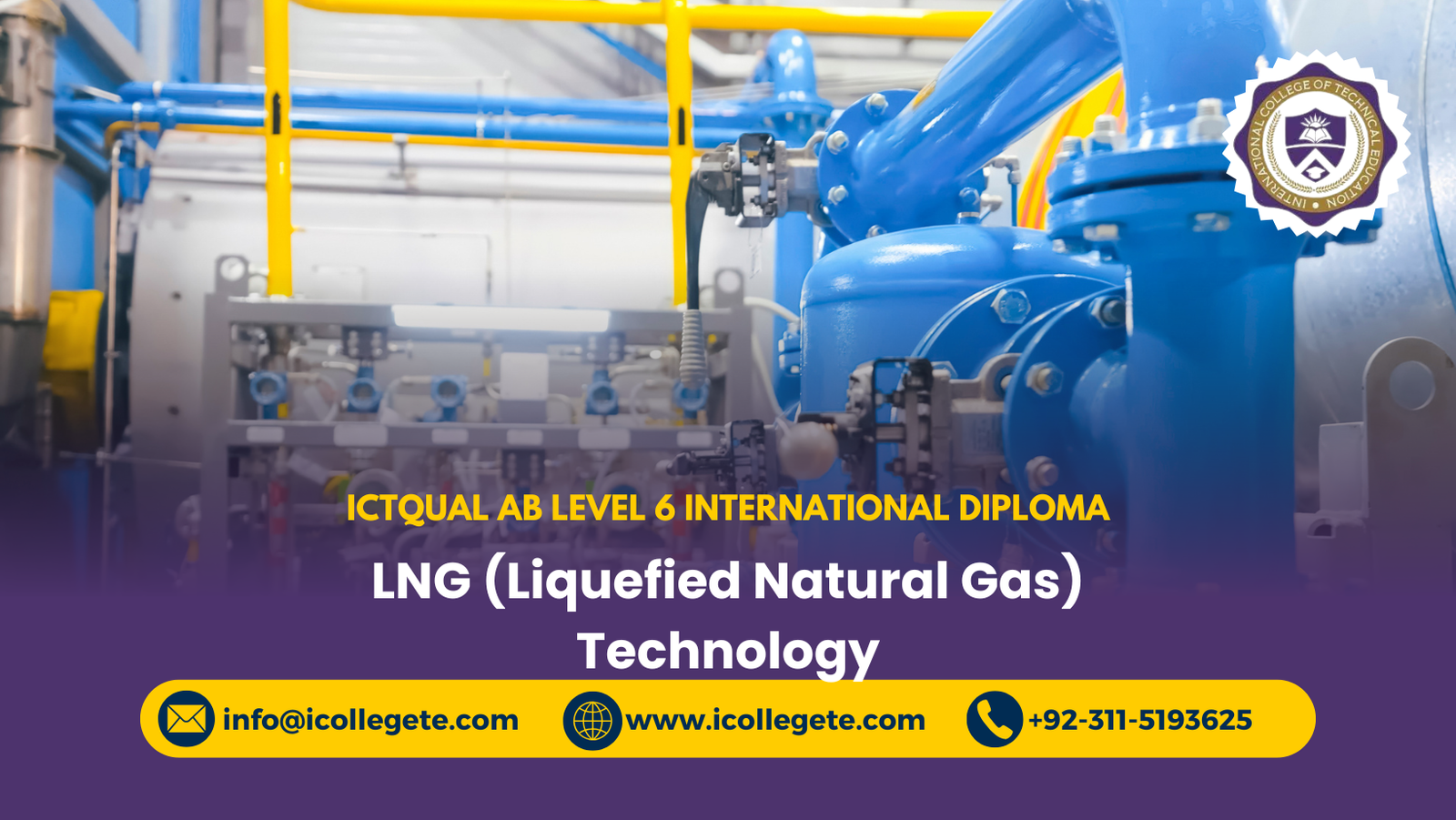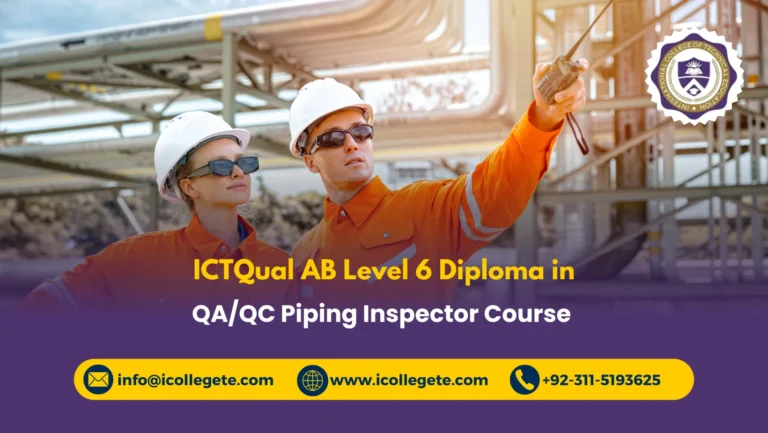The ICTQual AB Level 6 International Diploma in LNG Technology is a globally recognized qualification designed for professionals seeking advanced expertise in the liquefied natural gas sector. This program provides comprehensive knowledge of LNG production, storage, transportation, and regasification, equipping learners with the technical and managerial skills required to excel in this critical energy industry.
The curriculum emphasizes cryogenic engineering, process safety, and risk management, ensuring graduates can contribute to safe, efficient, and sustainable LNG operations worldwide. Learners also gain insights into international energy regulations and environmental sustainability, preparing them for leadership roles in the global energy transition.
Graduates of this diploma are well‑positioned for careers as LNG Engineers, Process Safety Specialists, Energy Project Managers, and Consultants, making this qualification a gateway to high‑demand opportunities in the LNG and broader energy sector.
Year 1 – Foundation in LNG Technology
- Principles of Chemical and Process Engineering
- Introduction to Liquefied Natural Gas (LNG)
- Natural Gas Properties and Analysis
- LNG Production Processes Overview
- Cryogenic Principles and Applications
- Heat and Mass Transfer in LNG Systems
- Introduction to LNG Plant Equipment and Technology
- Process Instrumentation and Control Basics
- Health, Safety, and Environmental Awareness
- Industrial Laboratory Techniques
- Technical Report Writing
- Introduction to LNG Simulation Software
Year 2 – Intermediate LNG Technology
- Advanced LNG Liquefaction Processes
- Gas Pretreatment and Sweetening Techniques
- Refrigeration Cycles and Cryogenic Operations
- Process Control and Automation in LNG Plants
- Energy Management and Efficiency in LNG Operations
- LNG Storage and Tank Design
- Process Safety Management and Hazard Analysis
- LNG Transportation and Pipeline Technology
- Quality Control and Assurance in LNG Production
- Environmental Management and Sustainability
- LNG Blending and Product Optimisation
- Data Analysis and Technical Communication
Year 3 – Advanced LNG Technology
- Advanced LNG Plant Optimisation and Troubleshooting
- LNG Project Management and Planning
- Advanced Cryogenic Engineering and Heat Exchangers
- LNG Process Simulation and Modelling
- Corrosion, Maintenance, and Reliability in LNG Systems
- Energy Transition and Cleaner LNG Technologies
- Risk Assessment and Emergency Response
- Advanced Laboratory Techniques and Process Testing
- Supply Chain and Logistics in LNG Operations
- Capstone Project in LNG Technology
- Professional Development and Leadership in Energy
- Strategic Decision-Making in LNG Plant Management
- Understand the scientific and engineering principles behind LNG production and processing
- Design and evaluate LNG systems and facilities for efficiency and safety
- Apply knowledge of thermodynamics and cryogenic processes in LNG operations
- Manage LNG plant operations, maintenance, and process optimization
- Implement safety standards and risk management systems in LNG environments
- Conduct environmental assessments and ensure regulatory compliance
- Utilize digital and automation tools for LNG monitoring and control
- Evaluate economic and market factors influencing LNG production and trade
- Develop sustainable strategies for LNG production and utilization
- Communicate effectively in multidisciplinary energy teams
- Analyze LNG logistics, supply chains, and global market trends
- Apply quality control and inspection practices in LNG systems
- Manage LNG projects from concept to execution
- Integrate renewable energy and sustainability approaches into gas operations
- Contribute to innovation and continuous improvement in LNG technologies
- Obtain an internationally recognized qualification in LNG technology
- Build expertise in gas processing, liquefaction, and storage systems
- Enhance employability in the oil, gas, and energy sectors
- Gain practical insights into modern LNG operations and management
- Develop leadership and decision-making skills for industrial projects
- Learn from experienced energy professionals and case studies
- Understand environmental and safety standards in LNG facilities
- Acquire the ability to design and manage LNG infrastructure
- Prepare for senior technical and managerial roles in the energy industry
- Strengthen global career opportunities in LNG and related fields
- Build knowledge of energy markets, economics, and sustainability
- Master digital and smart systems for process optimization
- Increase awareness of global energy transition and green technologies
- Contribute to cleaner and more efficient energy solutions
- Lay the foundation for advanced studies in energy and process engineering
- The ICTQual AB Level 6 International Diploma in LNG (Liquefied Natural Gas) Technology is ideal for engineers, technicians, and managers working in or aspiring to join the oil, gas, and energy industries. ICTQual AB Level 6 International Diploma in LNG (Liquefied Natural Gas) Technology is particularly beneficial for professionals involved in LNG processing, operations, maintenance, and safety management.
- Graduates in mechanical, chemical, electrical, or petroleum engineering seeking to specialize in LNG technology will find ICTQual AB Level 6 International Diploma in LNG (Liquefied Natural Gas) Technology highly valuable. Additionally, individuals from logistics, environmental, or project management backgrounds can enroll to broaden their expertise and career opportunities within the global LNG sector.









